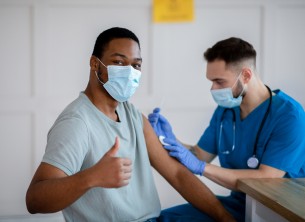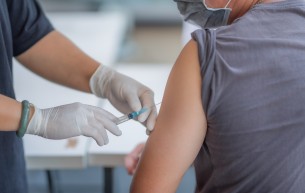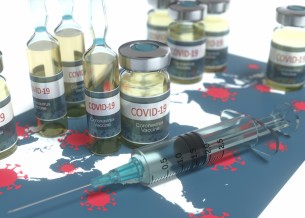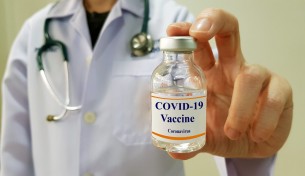
Ann Christiano, University of Florida College of Journalism and Communications Center for Public Interest Communications director, is quoted in “In the COIVD-19 Vaccine Push, No One is Speaking Gen Z’s Language” published on statnews.com on April 8. The article focuses on the lack of useful COVID-19 information from federal or…
Read more
The Center for Public Interest Communications at the University of Florida has received funding for two new projects that will offer science-informed tools to build support for COVD-19 vaccination among groups proving to be slower to accept the vaccine. After developing a science-informed communication guide for practitioners to address anticipated…
Read more
The Center for Public Interest Communications and The Agency , located in the University of Florida College of Journalism and Communications, on Feb. 26 conducted a virtual presentation, “Healthy Gainesville: Research Finding and Strategic Recommendations,” for the National League of Cities University Communities Council meeting on their mask-wearing campaign collaboration…
Read more
Frank LoMonte, University of Florida College of Journalism and Communications Brechner Center for Freedom of Information director, is quoted in “Florida Wants $17,000 to Release Documents About COVID-19 Vaccine Rollout” published on vice.com on Jan. 5. The article focuses on the Florida Department of Health’s large monetary request to turn…
Read more
Ann Christiano, University of Florida College of Journalism and Communications Center for Public Interest Communications director, and Jack Barry, a post-doctoral research associate for the Center, were featured in the GovExec Daily podcast “Establishing Public Trust in a Vaccine” on Dec. 7. Christiano and Barry discuss how officials can promote…
Read more
Ann Christiano, University of Florida College of Journalism and Communications Center for Public Interest Communications director, and Jack Barry, a post-doctoral research associate for the Center, are the authors of “Coronavirus Vaccines: Health Experts Identify Ways to Build Public Trust” published on The Conversation on Nov. 24. Christiano and Barry…
Read more
Ann Christiano, University of Florida College of Journalism and Communications Center for Public Interest Communications director, and Jack Barry, a post-doctoral research associate for the Center, collaborated with four scholars for “An Urgent Plea to Philanthropy: Help Us Persuade People to Take the COVID-19 Vaccine” published in The Chronicle of…
Read more
Benjamin Johnson, University of Florida College of Journalism and Communications Advertising assistant professor, is the co-author of “Media for Coping During COVID-19 Social Distancing: Stress, Anxiety and Psychological Well-Being” published in Frontiers in Psychology on Nov. 10. Johnson, Allison Eden, Leonard Reinecke and Sara Grady, using data from a cross-sectional…
Read more
“Unmuted: What Works, What Doesn’t, and How We Can All Do Better When Working Together Online” is a new report released by The Goodman Center in partnership with the University of Florida College of Journalism and Communications Center for Public Interest Communications (CPIC) and a consortium of non-profit organizations. With…
Read more
Clay Calvert, director of the Marion B. Brechner First Amendment Project at the University of Florida College of Journalism and Communications, was quoted in “Parents Concerned About School COVID-19 Cases Fear Laws May Protect Districts from Disclosing Important Health Information” posted on firstcoastnews.com on Sept. 22 Calvert comments on the…
Read more
Frank LoMonte, University of Florida College of Journalism and Communications Brechner Center for Freedom of Information director, is quoted in two articles published in the Atlanta Journal Constitution on Sept. 21. “Some Schools Withhold COVID-19 Infection Information from Parents, Teachers” focuses on the lack of or limited disclosure of data…
Read more
University of Florida STEM Translational Communication Center Director Janice Krieger and a team of researchers have been awarded a $152,492 supplement to the $3.04 million grant from the National Institutes of Health (NIH), which is testing the efficacy of using virtual technology to increase colorectal cancer screening among rural and…
Read more